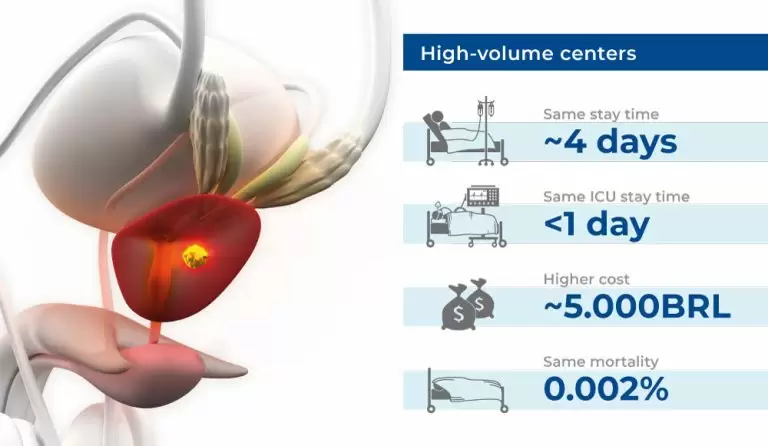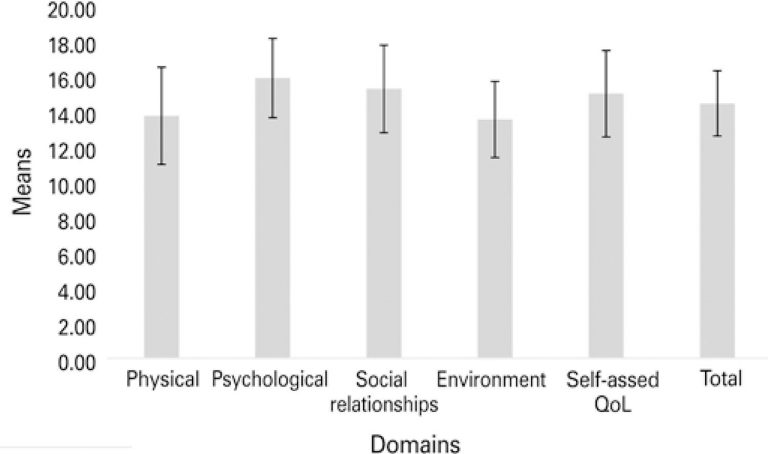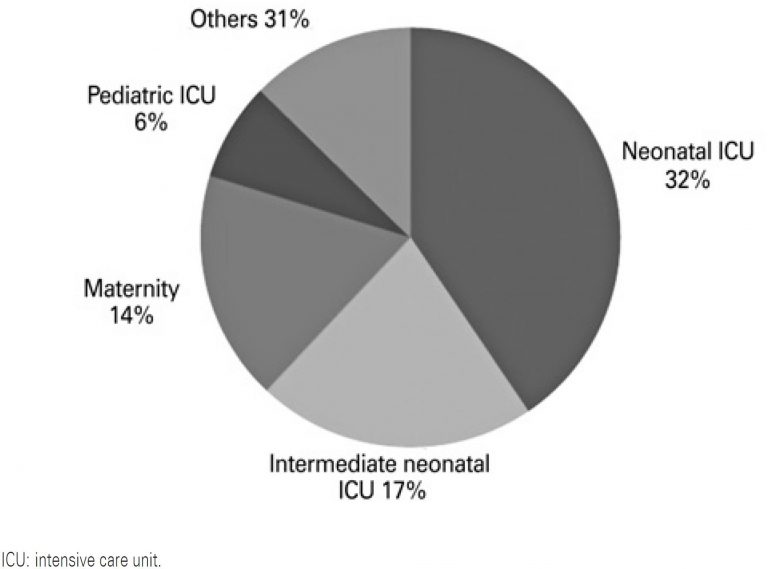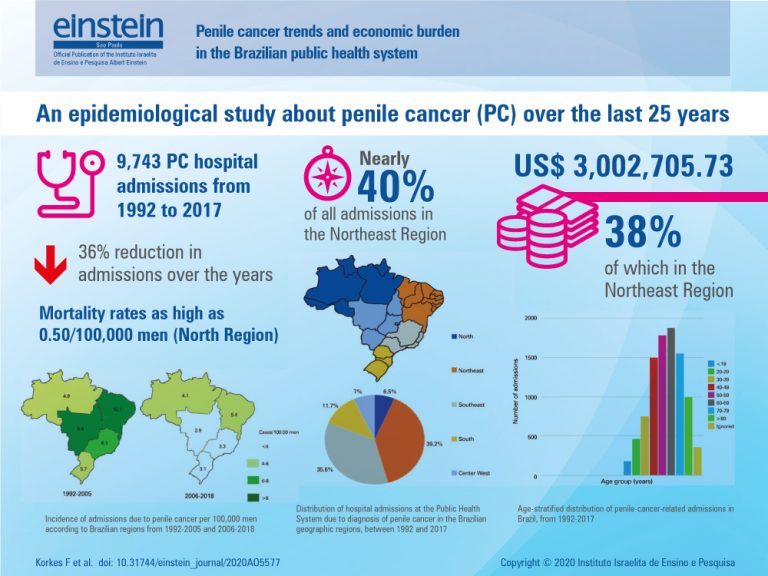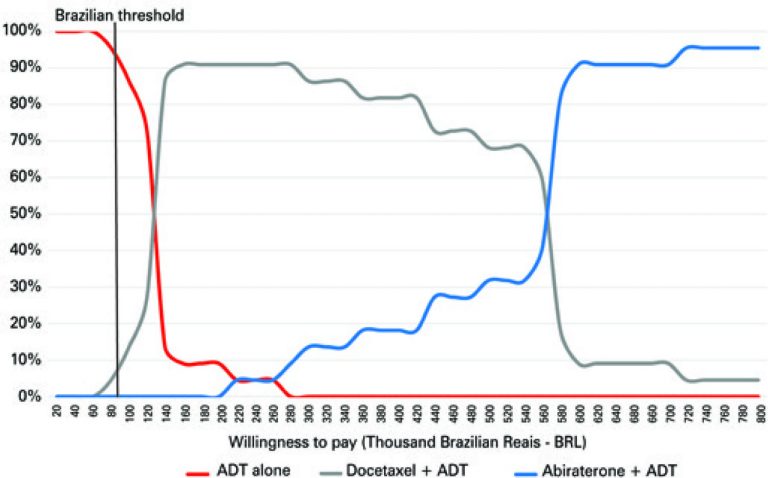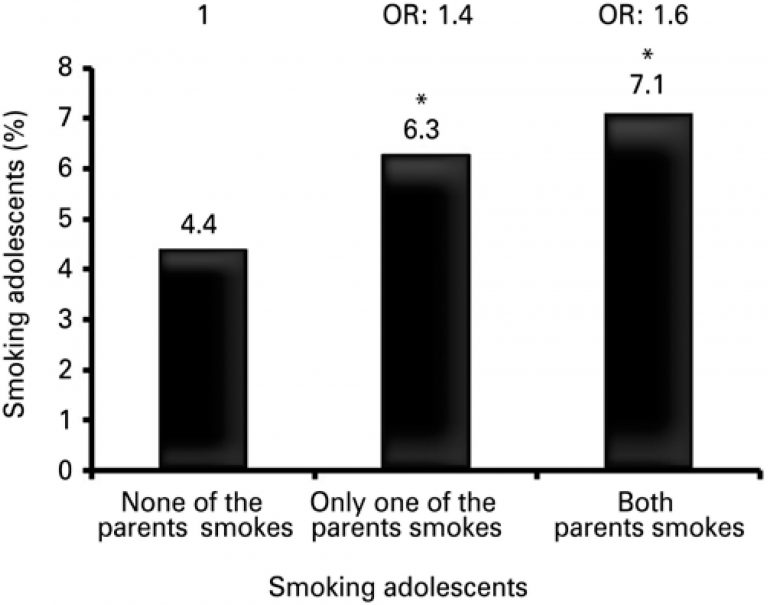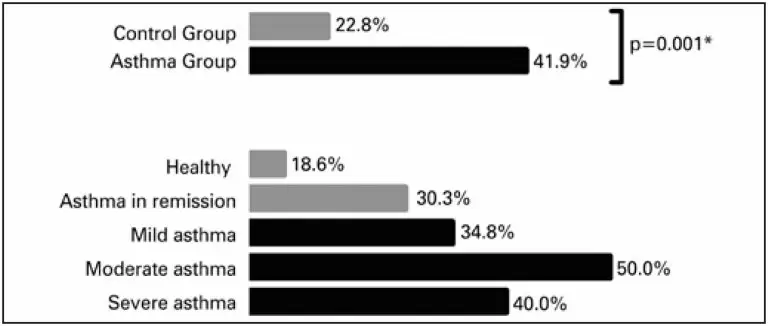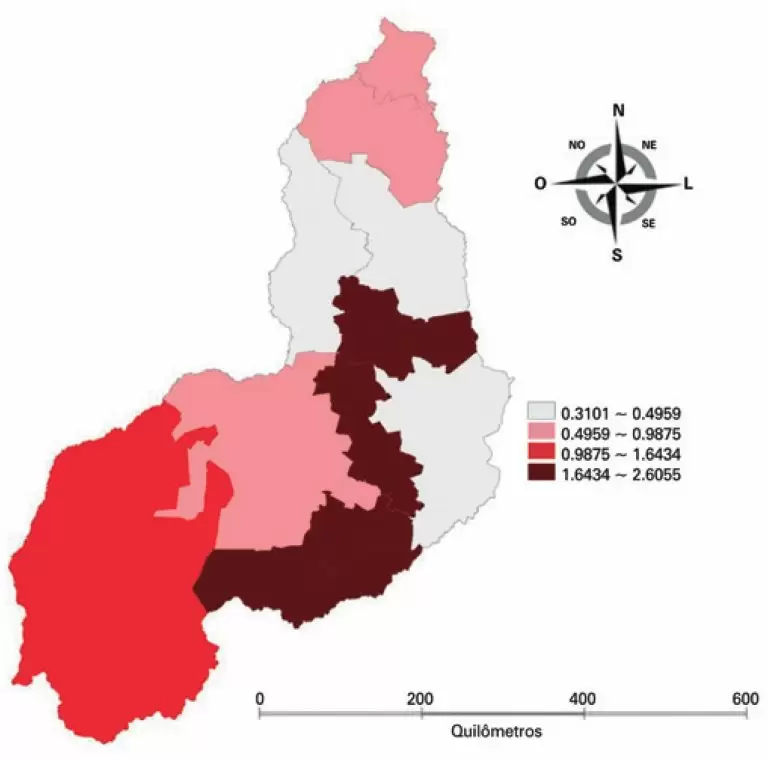21/Nov/2022
Radical prostatectomies for treatment of prostate cancer: trends in a ten-year period in public health services in the city of São Paulo, Brazil
einstein (São Paulo). 21/Nov/2022;20:eAO0049.
View Article21/Nov/2022
Radical prostatectomies for treatment of prostate cancer: trends in a ten-year period in public health services in the city of São Paulo, Brazil
DOI: 10.31744/einstein_journal/2022AO0049
ABSTRACT Objective To analyze the characteristics of public health services related to radical prostatectomy, according to hospital volume of surgeries and stratified as academic and non-academic centers. Methods An ecological study was conducted using a database available in TabNet platform of the Unified Health System Department of Informatics. Number of surgeries, length of hospital stay, length of stay in intensive care unit, in-hospital mortality rate, and cost of hospitalization were evaluated. The hospitals were divided into three subgroups according to […]
Keywords: Prostatectomy; Prostatic neoplasms; Public health
22/Jun/2022
Complications associated with the use of temporary pacemaker in patients waiting for definitive device implantation
DOI: 10.31744/einstein_journal/2022AO8013
ABSTRACT Objective To determine the rate of complications associated with the use of temporary pacemakers in patients in the waiting list for the definitive pacemaker implantation in a public hospital located in São Paulo, SP, Brazil. Methods Retrospective observational study based on data extracted from medical records of patients admitted to Hospital Municipal Dr. Moyses Deutsch, Hospital Israelita Albert Einstein from January 2014 to December 2018. Patients aged 18 years or older, diagnosed with high degree atrioventricular block upon admission […]
Keywords: Atrioventricular block; Cross infection; Hospitals, public; Longht of stay; Pacemaker, artificial; Public health
12/Aug/2021
Factors associated to quality of life in patients with leprosy
DOI: 10.31744/einstein_journal/2021AO5936
ABSTRACT Objective To evaluate quality of life and associated factors in patients with leprosy. Methods A cross-sectional study with 63 people diagnosed as leprosy, seen at a reference service for the disease in the southeastern region of Mato Grosso, Brazil. The questionnaire World Health Organization Quality of Life Bref was used to evaluate quality of life. Simple and multiple linear regressions evaluated the association between sociodemographic variables and quality of life domains. Results The highest mean of quality of life […]
Keywords: Epidemiologic factors; Epidemiology; Leprosy; Public health; Quality of life
28/Jun/2021
Influenza vaccination coverage in elderly and high-risk adults: characterization of associated factors
DOI: 10.31744/einstein_journal/2021AO5830
ABSTRACT Objective To evaluate the prevalence and factors associated with non-vaccination against influenza in the risk group. Methods A cross-sectional, population-based study, carried out in the city of Rio Grande (RS). The outcome was defined as belonging to risk groups and not having been vaccinated in the last 12 months. Demographic, socioeconomic, behavioral variables, and access for health services were analyzed. Results In this study, 680 individuals participated. The prevalence was 46.0% (95%CI: 41.8-50.3), ranging from 27.9% (elderly) to 81.8% […]
Keywords: Barriers to access of health services; Health services research; Influenza vaccines; Primary prevention; Public health; Risk groups
02/Jun/2021
Medical care in clinical genetics: an experience of decentralization in southern Brazil
DOI: 10.31744/einstein_journal/2021AO5708
ABSTRACT Objective: To describe the population assisted in a genetics outpatient clinic, in a medium-sized town, with respect to diagnosis, type of inheritance, and local impact of genetic care. Methods: Medical records and genetic consultation forms from 2006 to 2018 were reviewed. The variables analyzed were age, sex, origin, current residence, reason for consultation, professional who requested evaluation, final diagnosis, additional exams and their results. Results: A total of 609 patients were seen, 65.9% aged 0 to 12 years. Genetic […]
Keywords: Epidemiology; Genetics, medical; Health services research; Hospitals, university; Public health
30/Oct/2020
Penile cancer trends and economic burden in the Brazilian public health system
DOI: 10.31744/einstein_journal/2020AO5577
ABSTRACT Objective: To gather information on penile cancer epidemiologic trends and its economic impact on the Brazilian Public Health System across the last 25 years. Methods: The Brazilian Public Health System database was used as the primary source of data from January 1992 to December 2017. Mortality and incidence data from the Instituto Nacional de Câncer José Alencar Gomes da Silva was collected using the International Classification of Diseases ICD10 C60. Demographic data from the Brazilian population was obtained from […]
Keywords: Carcinoma, squamous cell; Costs and cost analysis; Development indicators; Penile neoplasms; Public health; Unified Health System
25/Feb/2019
Cost-effectiveness analysis of abiraterone, docetaxel or placebo plus androgen deprivation therapy for hormone-sensitive advanced prostate cancer
einstein (São Paulo). 25/Feb/2019;17(2):eGS4414.
View Article25/Feb/2019
Cost-effectiveness analysis of abiraterone, docetaxel or placebo plus androgen deprivation therapy for hormone-sensitive advanced prostate cancer
DOI: 10.31744/einstein_journal/2019GS4414
ABSTRACT Objective To evaluate the cost-effectiveness of the addition of chemotherapy or abiraterone to androgen deprivation. Methods We developed an analytical model to determine the cost-effectiveness of the addition of docetaxel or abiraterone versus androgen deprivation therapy alone. Direct and indirect costs were included in the model. The effects were expressed in Quality-Adjusted Life Years adjusted for side effects. Results Compared to androgen deprivation therapy alone, the addition of chemotherapy and of abiraterone generated 0.492 and 0.999, respectively, in Quality-Adjusted […]
Keywords: Cost-benefit analysis; Drug costs; Drug therapy/economy; Hormone therapy/economy; Placebo; Prostatic neoplasms/drug therapy; Public health
28/Dec/2018
Influence of parental smoking on the use of alcohol and illicit drugs among adolescents
einstein (São Paulo). 28/Dec/2018;17(1):eAO4377.
View Article28/Dec/2018
Influence of parental smoking on the use of alcohol and illicit drugs among adolescents
DOI: 10.31744/einstein_journal/2019AO4377
ABSTRACT Objective: To evaluate the association between parental smoking and the use of alcohol and illicit drugs among adolescent children. Methods: A cross-sectional study with 6,264 adolescents (59.7% female) aged between 14 and 19 years. To establish the sample, we used two-stage cluster random sampling. The data on parental smoking and use of cigarettes, alcohol and illicit drugs among adolescents were collected using a questionnaire. Results: Smoking adolescents were more prone to use alcohol (odds ratio − OR: 10.35; 95%CI: […]
Keywords: Adolescent; Parenting; Parents; Public health; Street Drugs; Tobacco use disorder
04/Jul/2018
Levels of knowledge about asthma of parents of asthmatic children
DOI: 10.1590/S1679-45082018AO4204
ABSTRACT Objective To evaluate the levels of knowledge about asthma of parents of school children. Methods A cross-sectional study was carried out with parents of children with medical diagnosis of asthma (mild, moderate and severe), followed up at an outpatient referral center for childhood asthma in the Southern region of Brazil (Asthma Group). Parents of children with asthma in remission and healthy children were also selected (Control Group). The Newcastle Asthma Knowledge Questionnaire (NAKQ) questionnaire was applied in both groups. […]
Keywords: Asthma; Education; Knowledge; Parents; Public health; Pulmonary medicine
04/Jul/2018
Incidence of variant hemoglobins in newborns attended by a public health laboratory
einstein (São Paulo). 04/Jul/2018;16(2):eAO4150.
View Article04/Jul/2018
Incidence of variant hemoglobins in newborns attended by a public health laboratory
DOI: 10.1590/S1679-45082018AO4150
ABSTRACT Objective To evaluate the incidence of variant hemoglobins in different health regions. Methods A descriptive, observational, and cross-sectional study with a quantitative approach based on secondary data in the internal records of the neonatal screening service – Laboratório Central de Saúde Pública do Estado do Piauí (PI, Brazil). The variables related to sex, ethnicity and positive diagnosis for variant hemoglobins were analyzed, with further population distribution of hemoglobinopathies among the macroregions of the state. Results A total of 69,180 […]
Keywords: Anemia, sickle cell; Hemoglobinopathies; Infant, Newborn; Mass screening; Neonatal screening; Public health


